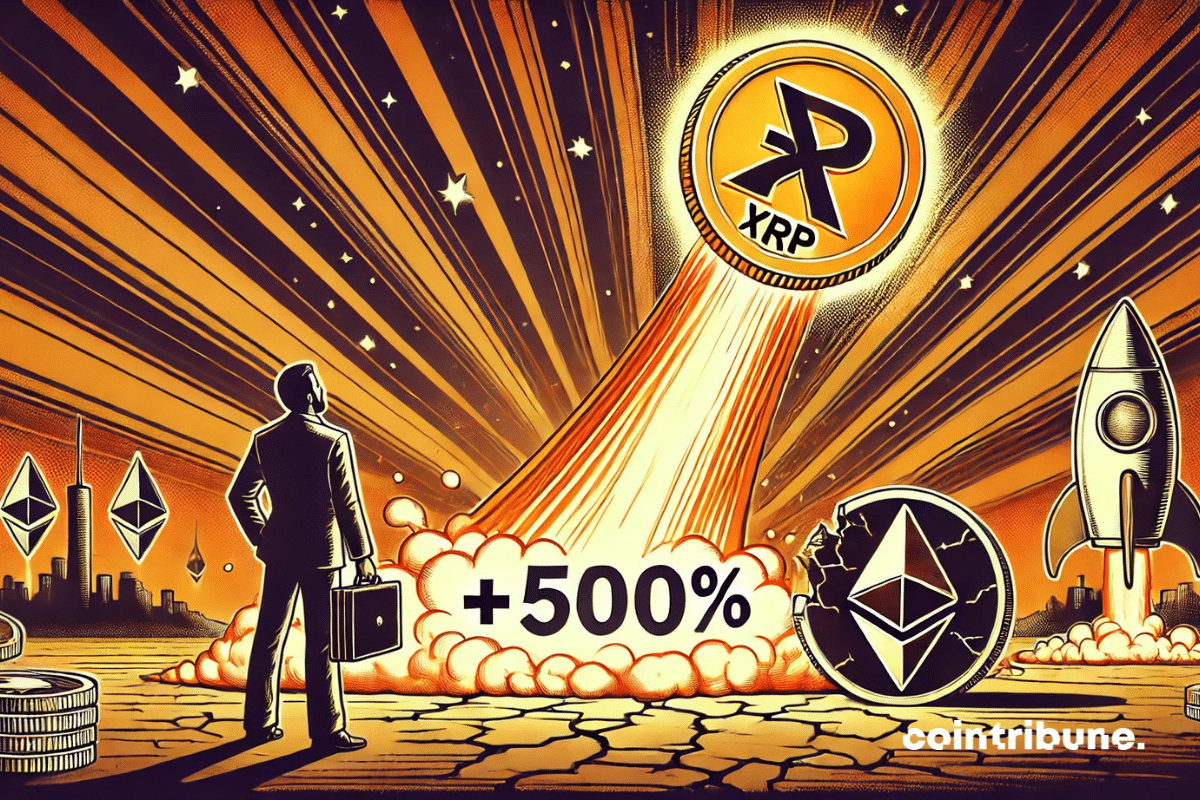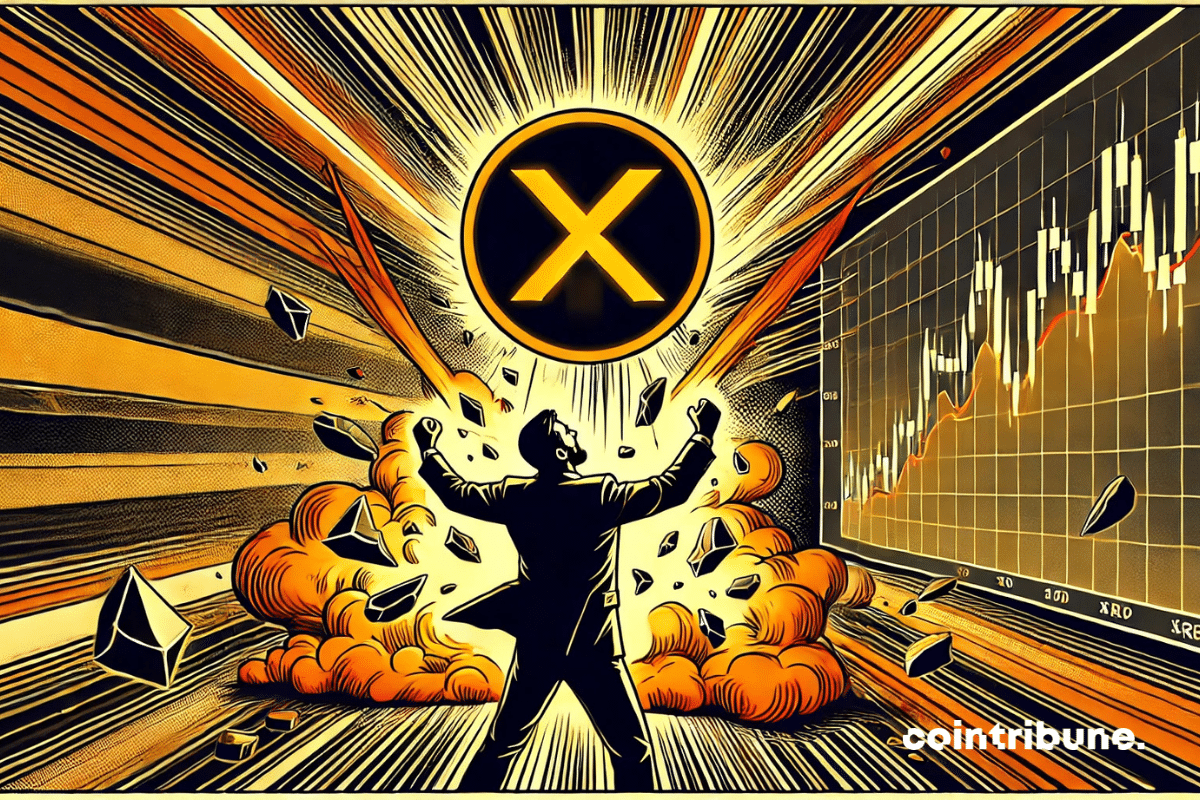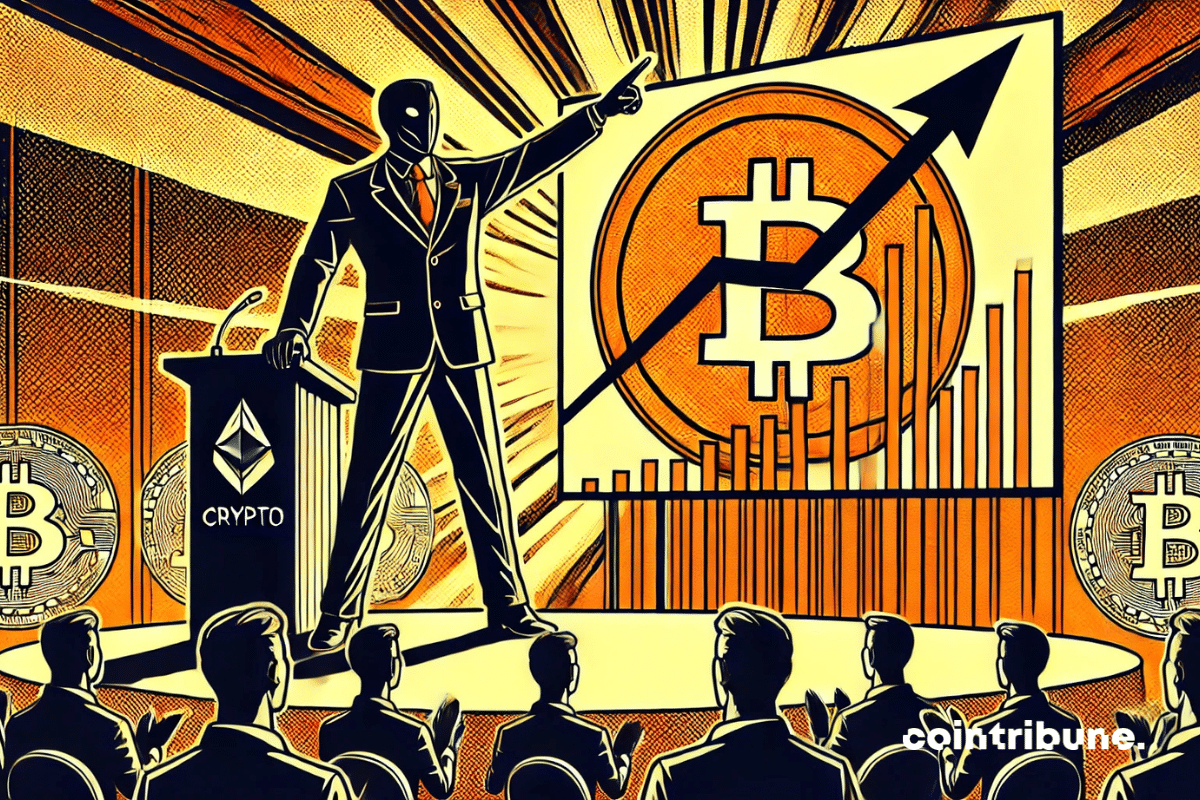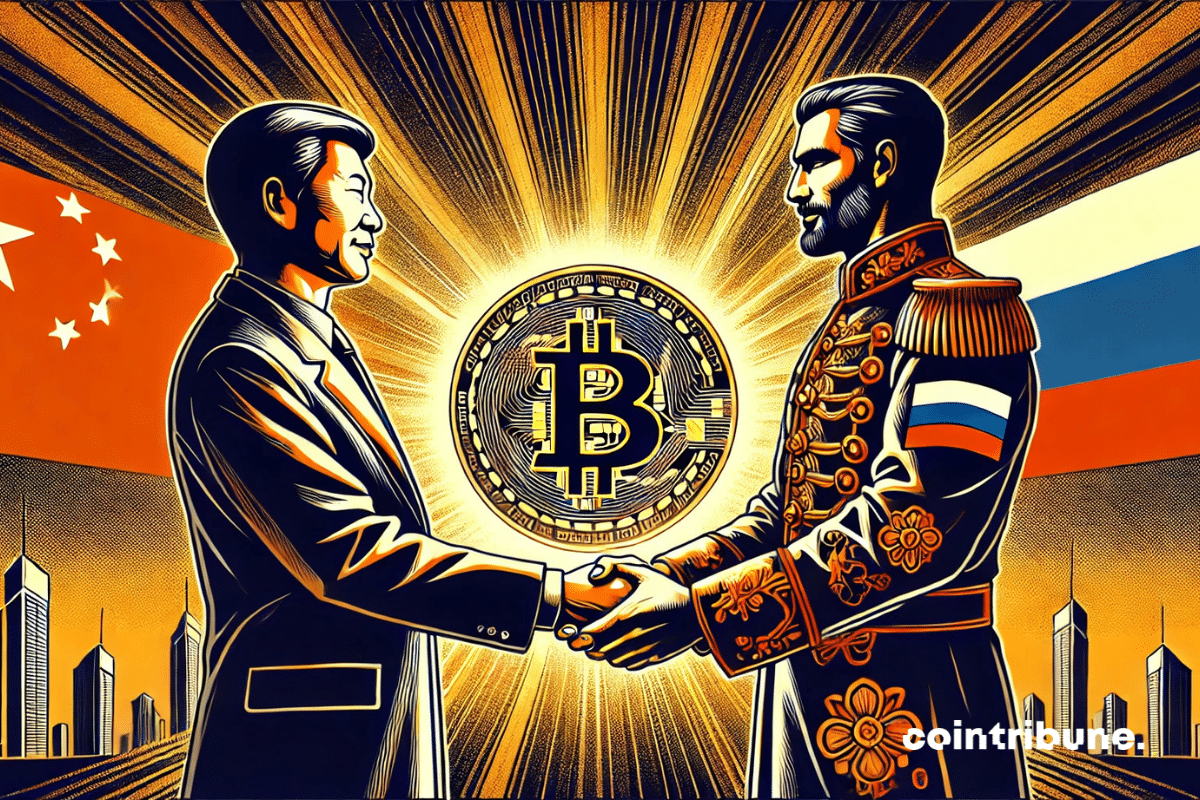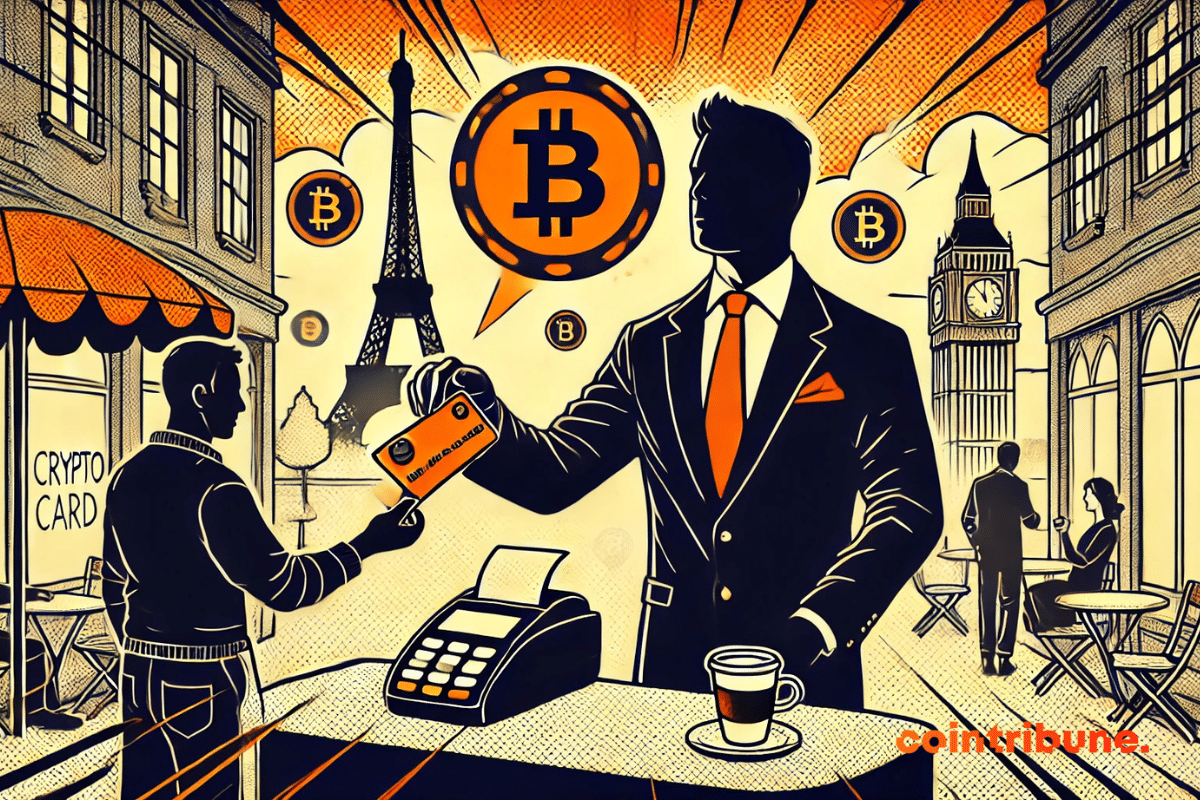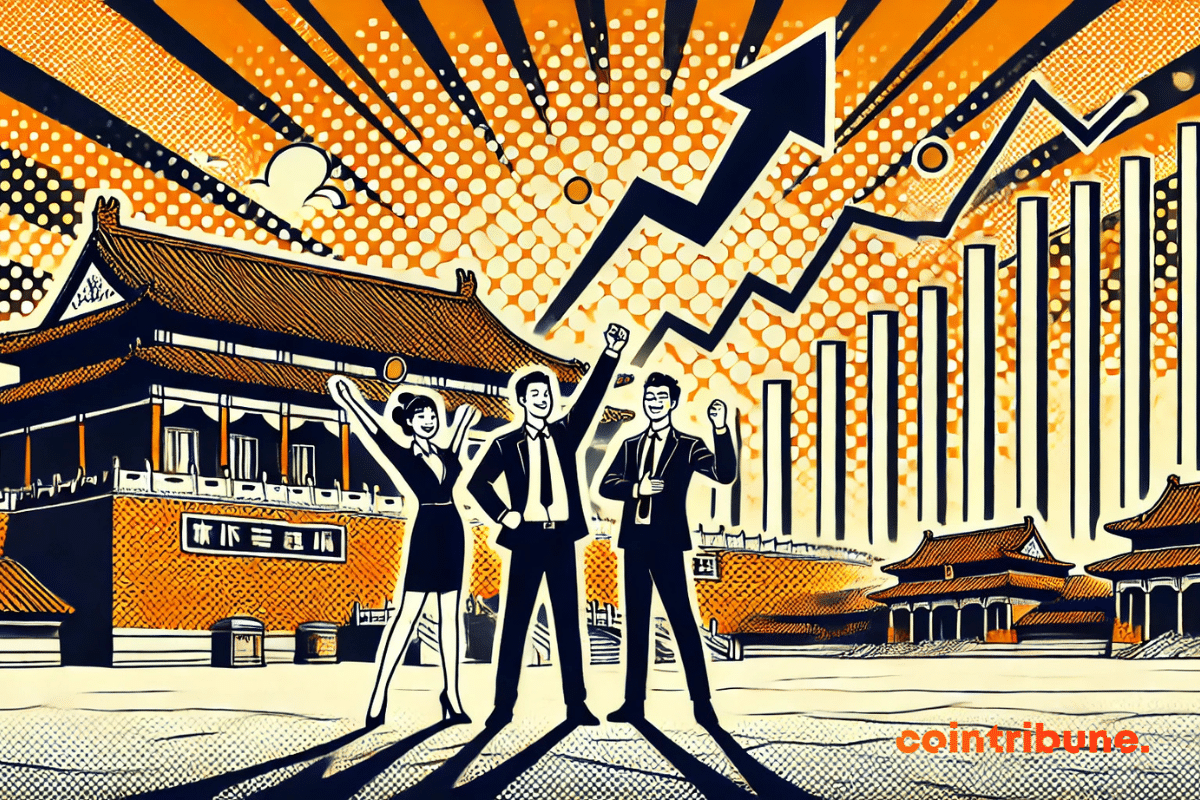XRP is making a strong comeback among the major contenders at the top of the crypto market. Standard Chartered expects a surge of 500% by 2028, enough to surpass Ethereum in market capitalization. Such a scenario would place Ripple at the heart of new digital balances, just behind Bitcoin. This rise is supported by the momentum of tokenization, the growing commitment of institutions, and an improving regulatory climate. The hierarchy of cryptocurrencies may be on the verge of tipping.
Home » Archives for Luc Jose Adjinacou » Page 2
Luc Jose A.
Diplômé de Sciences Po Toulouse et titulaire d'une certification consultant blockchain délivrée par Alyra, j'ai rejoint l'aventure Cointribune en 2019. Convaincu du potentiel de la blockchain pour transformer de nombreux secteurs de l'économie, j'ai pris l'engagement de sensibiliser et d'informer le grand public sur cet écosystème en constante évolution. Mon objectif est de permettre à chacun de mieux comprendre la blockchain et de saisir les opportunités qu'elle offre. Je m'efforce chaque jour de fournir une analyse objective de l'actualité, de décrypter les tendances du marché, de relayer les dernières innovations technologiques et de mettre en perspective les enjeux économiques et sociétaux de cette révolution en marche.
As geopolitical tensions reshape global balances, the BRICS are accelerating the establishment of their own payment network. Led by Russia, this infrastructure aims to free itself from SWIFT and open a financial pathway outside of Western control. The announcement of its accessibility to non-member countries marks a strategic rupture. Beyond being a regional tool, BRICS Pay becomes a lever of global influence and a strong signal in favor of a multipolar monetary order.
XRP, the emblematic cryptocurrency of Ripple, is the subject of frontal attacks on its structure and philosophy. A blockchain expert questions its alleged decentralization and accuses the protocol of authoritarian drift. This criticism reignites a central debate in the industry: what truly constitutes a decentralized blockchain? Ripple, for its part, defends its design and claims resilience and efficiency. As pressure mounts, XRP finds itself at the heart of an ideological clash that could redefine the criteria for acceptability in the crypto universe.
Crypto in France is moving out of its phase of euphoria towards a more mature structuring. This 2025 study by Adan (Association for the Development of Digital Assets), conducted with Deloitte and Ipsos, presents a clear assessment: stabilized adoption, asserted industrial ambitions, but persistent challenges. Amid the rise of Web3, institutional openness, and regulatory barriers, the French ecosystem is carving its path towards sustainable integration. This survey sheds light on the springs of a dynamic in full redefinition, where the strategic future of cryptocurrencies in Europe is at stake.
On April 12, Donald Trump surprised the markets by lifting a series of tariffs on strategic technology products. This move, amidst the rivalry with China, instantly propelled bitcoin beyond $85,000. Far from a simple trade adjustment, this decision reshapes industrial balances and sends a strong message: American economic policy is now aligned with the interests of digital players and the crypto sector.
JPMorgan crushes forecasts but tempers euphoria. Through the publication of historical results for the first quarter of 2025, the leading American bank asserts its power amid ongoing volatility. However, Jamie Dimon is not celebrating victory. He warns of an accumulation of systemic risks, from inflation to geopolitical tensions. This dual signal, between accounting triumph and strategic warning, summarizes the paradoxes of a banking sector facing an uncertain world.
48,575 BTC moved in a single day: a rare, massive maneuver with heavy implications. On April 9, as trade tensions between Washington and Beijing rekindle uncertainty, nearly $3.6 billion in bitcoin was transferred to accumulation wallets, a record volume since 2022. Behind this movement, strong signals emerge: major investors seem to be betting once again on a market pullback to strengthen their position. This sequence could mark a strategic turning point.
The bullish dynamics of the crypto market are faltering. While the total market capitalization remains stable around $2.52 trillion, the declines seen in Bitcoin, Ethereum, and other heavyweights in the sector (XRP and Dogecoin) are feeding doubts. Faced with unbroken technical resistances, several traders fear entering a bearish cycle. The market, already fragile, could tip over if no rebound signal appears quickly.
In the midst of a commercial battle, the European Union agrees to negotiate the elimination of tariffs on Chinese electric vehicles. Supported by massive subsidies, these low-cost models disrupt the balance of the European market. This turnaround marks a turning point, as Europe, torn between industrial protectionism and ecological transition, opens itself to a risky compromise. In a key sector, this rapprochement could reshuffle the cards between two rival powers, linked by competition as much as by interdependence.
Different technical signals, when they align, act as a silent warning in the markets. This is the case with XRP, whose Bollinger Bands have just tightened to a level rarely observed. Thus, this configuration fuels speculation of a possible rally towards $2.50. In an ecosystem where every indicator can trigger a wave, this movement draws the attention of seasoned investors as well as technical analysts.
Long suppressed by regulations deemed hostile, the American crypto industry may be on the brink of a major turnaround. Indeed, Donald Trump's return to the White House is accompanied by a clear shift in direction: to make the United States a bastion of financial technologies. An unprecedented discourse is taking root at the top of the state, driven by a desire to break away from the Biden era. Behind the announcements, a strategy is taking shape, promising a new momentum for cryptos and a rehabilitation of the sector in the eyes of regulators.
As the BRICS intensify their dedollarization strategy, Beijing and Moscow are taking an unprecedented step: using bitcoin to settle certain trade transactions. This initiative, revealed by VanEck, marks a symbolic turning point in the internationalization of cryptocurrencies. It reflects a clear intention to break free from financial circuits dominated by the West, aiming to give bitcoin a new geopolitical role. This shift could herald a new monetary order in which cryptocurrencies redefine the levers of economic sovereignty.
"Kraken and Mastercard are teaming up to launch a crypto debit card in Europe and the UK. This announcement illustrates the willingness of industry giants to make cryptocurrencies a tangible payment tool, beyond speculation. In a market under regulatory pressure, this initiative embodies a new phase: that of usage and the real integration of cryptocurrencies into everyday life. It is a strong signal at a time when the industry is seeking tangible and compliant use cases."
Global trade is wobbling under the effect of a new escalation between Washington and Beijing. Donald Trump is reigniting the tariff offensive against China, rekindling a trade war that marked his previous term. Beijing, far from backing down, is deploying a firm response, determined to defend its strategic interests. This renewed showdown between the two superpowers resonates well beyond customs, threatens global economic balances, and stirs tensions in international markets. A confrontation whose implications could be felt well beyond American and Chinese borders.
Ethereum is wobbling, and the shadow of previous bear cycles resurfaces. In just three months, ETH has lost more than 65% of its value, bringing speculators and investors to a major psychological threshold: $1,000. This drop would not be a simple correction but an echo of the crashes of 2018 and 2022. As indicators slide into panic zones, the prospect of a definitive floor fuels both the hope of a rebound and the fear of prolonged capitulation.
